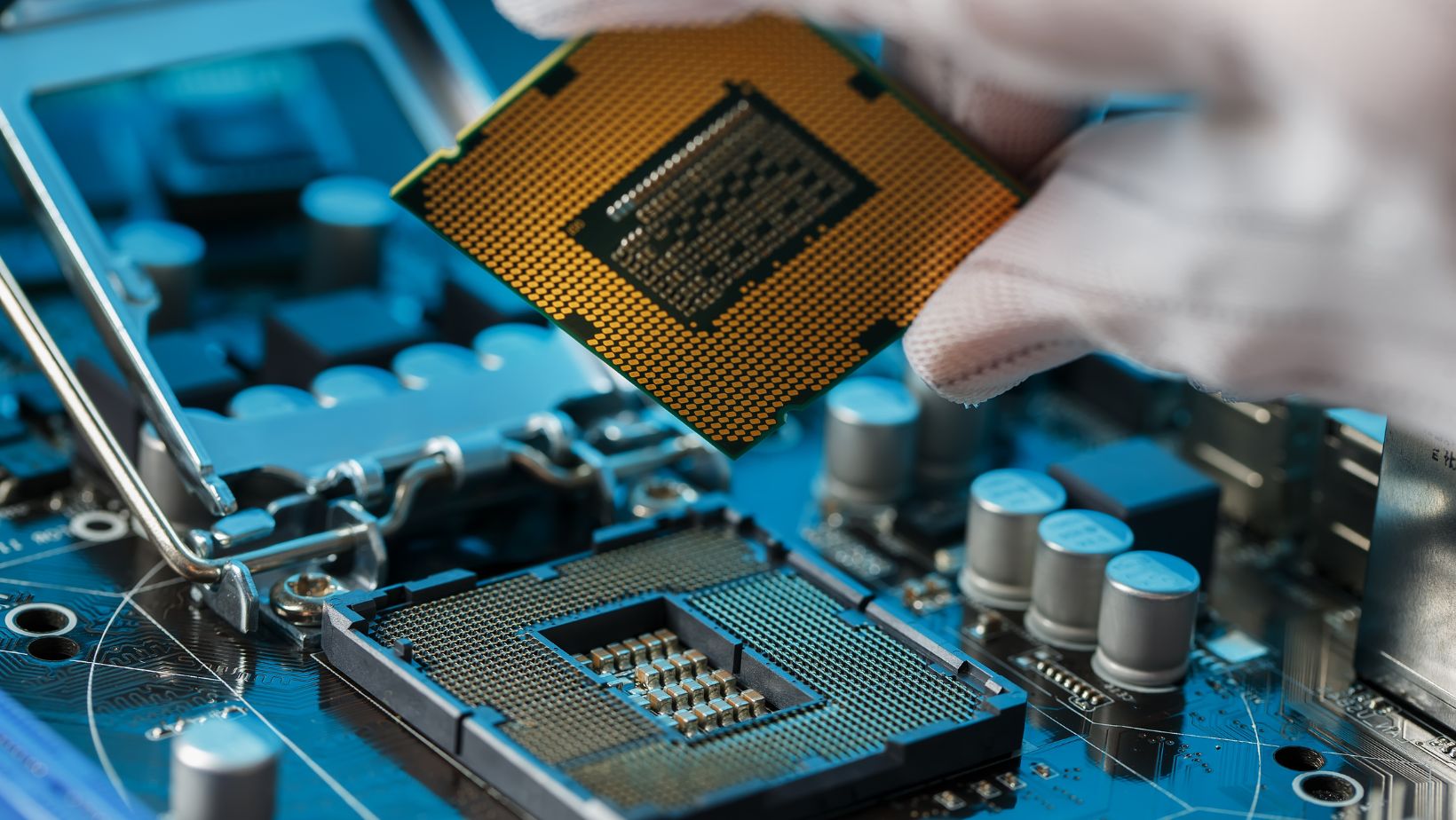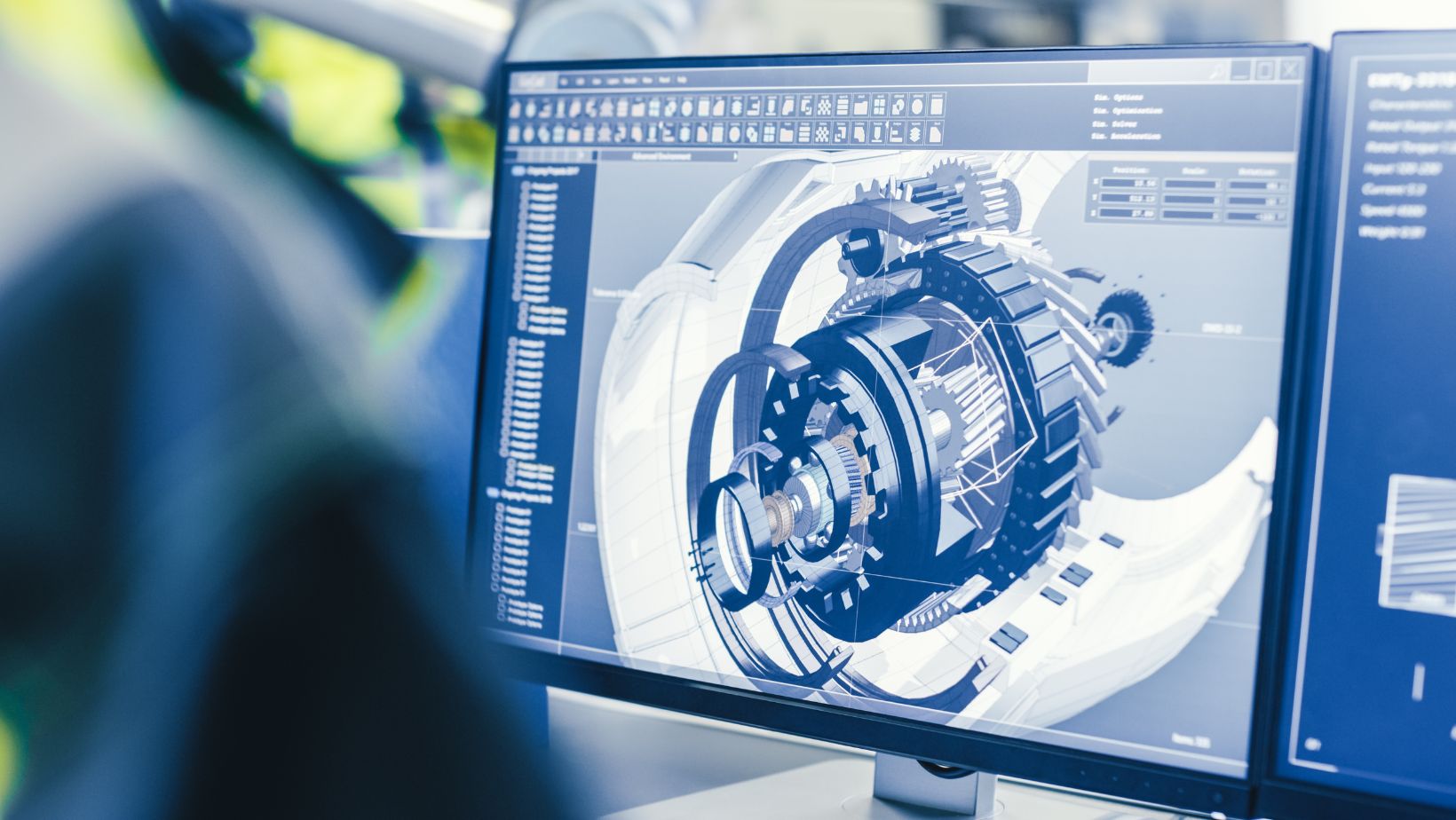 Computer Engineering Technology: A Comprehensive Overview
Computer Engineering Technology: A Comprehensive Overview
Computer Engineering Technology
As a computer engineering technology enthusiast, I find this field to be both fascinating and ever-evolving. Computer engineering technology is at the core of technological advancements today, shaping the way we live, work, and interact with the world around us. It  blends principles of computer science and electrical engineering to create innovative solutions that drive progress across various industries.
blends principles of computer science and electrical engineering to create innovative solutions that drive progress across various industries.
In exploring computer engineering technology, one can delve into a realm where creativity meets technical expertise. From designing cutting-edge hardware components to developing intricate software systems, the possibilities within this field are vast and exciting. The fusion of theoretical knowledge with hands-on practical skills is what sets computer engineering technology apart as a dynamic and impactful discipline.
The demand for professionals well-versed in computer engineering technology continues to rise as society becomes increasingly reliant on digital technologies. Whether it’s enhancing cybersecurity measures, optimizing network infrastructures, or pioneering artificial intelligence applications, the role of a computer engineering technologist is pivotal in shaping the future of innovation.
Overview of Computer Engineering Technology
Computer engineering technology is a dynamic field that merges principles of computer science and electrical engineering to design, develop, and maintain hardware and software systems. It’s an ever-evolving discipline at the forefront of technological advances, influencing various industries worldwide. With a focus on innovation and problem-solving, computer engineering technology professionals play a crucial role in shaping our digital landscape.
- Hardware Development: Involves designing and testing computer components such as processors, memory devices, printed circuit boards, and networking equipment.
- Software Design: Encompasses creating programs and applications for diverse computing platforms, ensuring functionality, efficiency, and security.
- System Integration: Involves combining hardware and software elements to build comprehensive systems that meet specific requirements.
Internet of things systems are networks of physical devices, vehicles, home appliances, and other items embedded with sensors, software, and connectivity, allowing them to collect and exchange data with other devices and systems over the internet. This enables these devices to become more intelligent and autonomous, automating tasks, optimizing processes, and improving efficiency in various industries such as manufacturing, healthcare, transportation, and energy management.
Impact on Society:
Computer engineering technology has revolutionized how we communicate, work, learn, and entertain ourselves. From smartphones to self-driving cars, the innovations driven by this field have transformed every aspect of modern life. The ability to connect people globally in real-time and automate complex tasks has significantly enhanced productivity across industries.
 Career Opportunities:
Career Opportunities:
Professionals in computer engineering technology have a wide range of career paths available to them. They can work in areas such as cybersecurity, artificial intelligence (AI), robotics, data analysis, cloud computing, or telecommunications. The demand for skilled individuals in this field continues to grow as businesses increasingly rely on advanced technologies to stay competitive.
The field of computer engineering technology offers endless possibilities for those passionate about creating cutting-edge solutions that push the boundaries of what is possible with technology. Whether developing new algorithms for machine learning or optimizing network infrastructure for faster data transmission speeds – the opportunities within this exciting field are boundless!
Evolution of Computer Engineering Technology
When delving into the realm of computer engineering technology, it’s crucial to understand its evolution over time. This field has witnessed remarkable advancements that have shaped the way we interact with technology today.
Early Developments:
- 1940s – 1950s: The inception of computer engineering saw the development of large mainframe computers used primarily for scientific and military purposes.
- 1960s – 1970s: The introduction of integrated circuits revolutionized computing, leading to smaller, more powerful machines accessible to businesses and eventually consumers.
- 1980s – 1990s: The era of personal computing emerged, with companies like IBM and Apple popularizing desktop computers in homes and offices.
Technological Innovations:
- Internet Revolution: The advent of the internet in the late 20th century transformed how information is shared globally, paving the way for interconnected systems and communication networks.
- Mobile Computing: The rise of smartphones and tablets in the early 21st century brought computing power to our fingertips, enabling mobility and instant access to a wealth of information.
 Future Trends:
Future Trends:
- Artificial Intelligence (AI): AI technologies such as machine learning are reshaping industries by automating tasks and providing insights from vast amounts of data.
- Quantum Computing: Quantum computers hold the potential to solve complex problems exponentially faster than traditional computers, promising breakthroughs in fields like cryptography and drug discovery.
As I reflect on these milestones in computer engineering technology, it becomes evident that innovation continues to drive progress in this dynamic field. Embracing new technologies will be key to shaping a future where computational capabilities push boundaries beyond our current imagination.
Importance of Computer Engineering Technology
Computer engineering technology plays a CRUCIAL role in shaping the modern world. It’s not just about creating new gadgets; it’s about revolutionizing industries, enhancing communication, and advancing scientific research. The IMPACT of this field is profound and far-reaching.
In today’s digital age, computer engineering technology DRIVES innovation across various sectors. From developing sophisticated algorithms for artificial intelligence to designing efficient hardware systems, the APPLICATIONS are diverse and impactful. Companies rely on computer engineers to streamline processes, increase productivity, and stay ahead of the competition.
One cannot understate the SIGNIFICANCE of computer engineering technology in our daily lives. Think about how seamlessly we interact  with smartphones, smart home devices, and social media platforms – all made possible through the work of computer engineers. These TECHNOLOGICAL advancements have transformed the way we work, communicate, and entertain ourselves.
with smartphones, smart home devices, and social media platforms – all made possible through the work of computer engineers. These TECHNOLOGICAL advancements have transformed the way we work, communicate, and entertain ourselves.
Moreover, as data becomes increasingly valuable in decision-making processes, computer engineering technology plays a CRITICAL role in data analysis and cybersecurity. Protecting sensitive information from cyber threats requires skilled professionals who understand complex systems and can anticipate potential vulnerabilities.
The ongoing DEVELOPMENT in computer engineering technology promises even more exciting opportunities for growth and innovation. As we embrace emerging technologies like quantum computing, Internet of Things (IoT), and machine learning, the demand for skilled computer engineers will only continue to rise. Mastering these technological frontiers will be KEY to unlocking future possibilities and driving progress across industries.
Future Prospects of Computer Engineering Technology
As technology continues to advance at a rapid pace, the future prospects of computer engineering technology are both exciting and promising. Here’s a closer look at some key areas where significant developments are expected:
 Artificial Intelligence Integration
Artificial Intelligence Integration
The integration of artificial intelligence (AI) into various aspects of computer engineering is set to revolutionize industries across the board. From autonomous vehicles to healthcare diagnostics, AI algorithms are becoming increasingly sophisticated, enabling machines to learn, adapt, and make decisions with minimal human intervention.
Internet of Things (IoT) Expansion
With the expansion of the Internet of Things (IoT), more devices are becoming interconnected, creating vast networks that share data and communicate seamlessly. As computer engineers work on optimizing IoT systems for efficiency and security, we can anticipate a world where everyday objects are smart and interconnected in ways we never thought possible.
Quantum Computing Breakthroughs
Quantum computing represents a paradigm shift in computational power, offering the potential to solve complex problems exponentially faster than classical computers. As researchers make strides in developing practical quantum technologies, the implications for fields like cryptography, drug discovery, and climate modeling are profound.
Summing up the fascinating world of computer engineering technology, it’s clear that this field plays a vital role in shaping our modern society. From developing innovative software to designing cutting-edge hardware, computer engineers are at the forefront of technological advancements.

